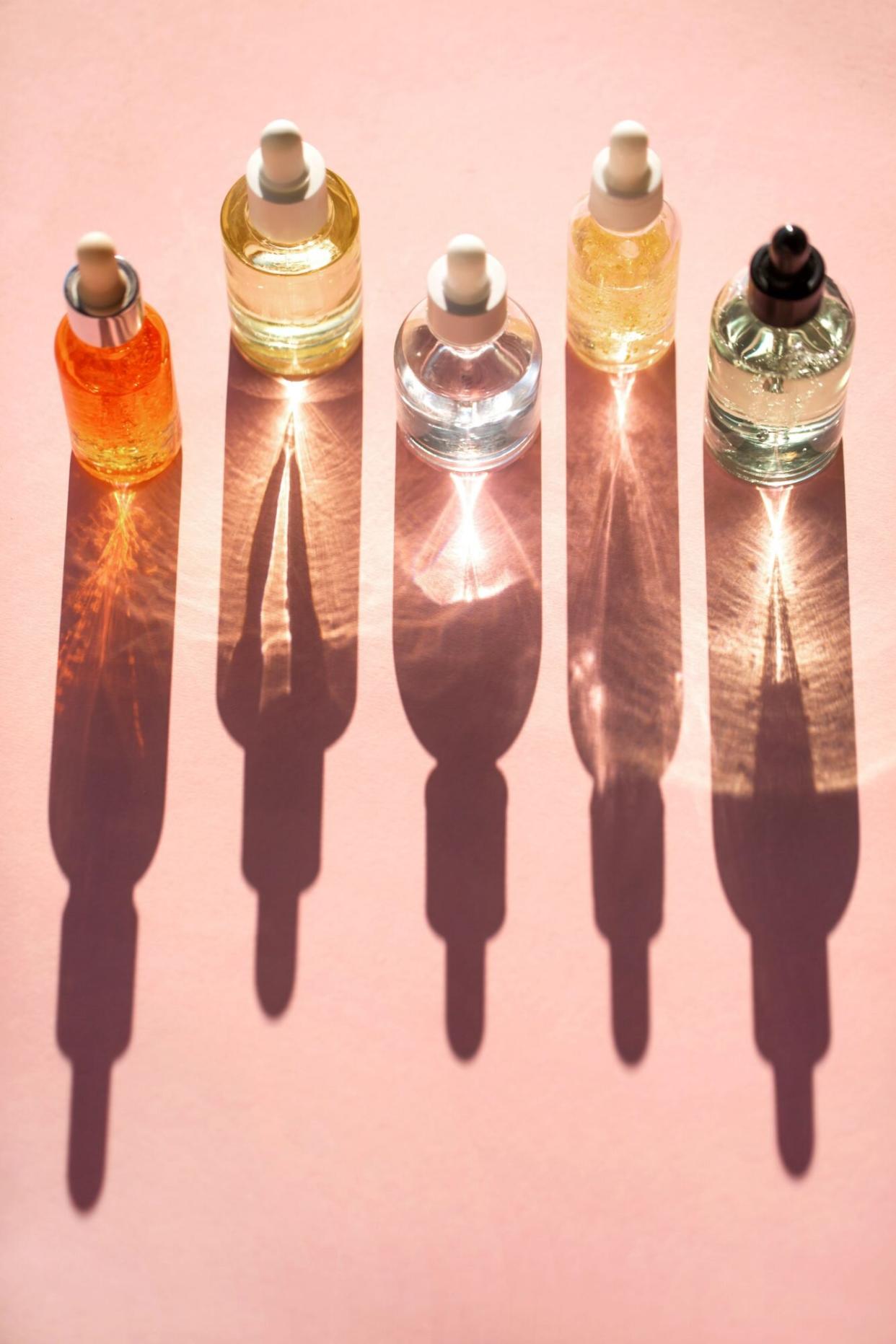California Is Banning 24 Ingredients from Beauty Products — But What Does This Really Mean?

Getty Images
On Sept. 30, California Governor Gavin Newsom signed the Toxic-Free Cosmetics Act (AB 2762) into effect. The unprecedented bill is the nation's first state-level ban of 24 ingredients from beauty and personal care products.
As of January 2025, the bill prohibits "a person or entity from manufacturing, selling, delivering, holding, or offering for sale, in commerce any cosmetic product that contains any of several specified intentionally added ingredients." These ingredients include dibutyl phthalate, diethylhexyl phthalate, formaldehyde, paraformaldehyde, methylene glycol, quaternium-15, mercury, isobutylparaben, isopropylparaben, m-Phenylenediamine and its salts, o-Phenylenediamine and its salts, and several per- and polyfluoroalkyl substances (PFAS) and their salts.
Many of the ingredients included in the bill are already banned or restricted in Europe.
However, the bill clarifies an exception to the ban. "If a cosmetic product made through manufacturing processes intended to comply with this chapter contains a technically unavoidable trace quantity of an ingredient listed in subdivision and that trace quantity stems from impurities of natural or synthetic ingredients, the manufacturing process, storage, or migration from packaging, that trace quantity shall not cause the cosmetic product to be in violation of this section."
RELATED: Everyone Wants Clean Beauty Products, But Does Anyone Know What "Clean" Really Means?
The Toxic-Free Cosmetics Act is largely supported and initiated by the Environmental Working Group (EWG), a non-profit organization that "specializes in research and advocacy in the areas of agricultural subsidies, toxic chemicals, drinking water pollutants, and corporate accountability." The EWG provides Skin Deep, an online database that ranks cosmetics and personal products in terms of safety based on the "toxicity" of their ingredients.
While California is the fist state to ban these ingredients in cosmetics and personal care products, it doesn't affect the bills introduced in congress, such as the Safe Cosmetics and Personal Care Products Act.
"The FDA still needs the power to review chemicals of concern and to oversee the $70 billion cosmetics industry," says Scott EWG's senior vice president for government affairs. "The House Energy and Commerce Committee has made important changes to his cosmetics reform bill. But House Republicans have refused to come to the table and Senate Republicans have refused to take up bipartisan reform legislation by Sens. Collins and Feinstein."
RELATED: The Exact Order You Should Apply Your Skincare Products — Morning and Night
However, it's important to note that while there are some studies linking these ingredients to greater risks of allergies, cancer, and hormone disruption, the definition of "clean beauty" and "toxic" are largely left up to the individual brand, making it easy for the terms to be left open to interpretation and used as marketing grabs.
"There is no universal definition for the term toxic in relation to their use in a formulation," says David Petrillo, chemist, and founder of skincare brand Perfect Image. "It is used to define ingredients known or suspected to be harmful and then market products that don't use those ingredients. The 'toxic' label is often applied when an environmental or consumer group releases studies to show that a particular ingredient could be contributing to negative effects in terms of allergies, irritations, chemical absorption into the blood, commonly cancer concerns, or other health threats."
Petrillo also points out that the ingredients included in the ban seem to be inspired by European regulations or their connection to breast cancer. Specifically, formaldehyde, commonly used in hair straightening products, which are often marketed towards women of color.
That being said, a number of the 24 ingredients aren't even used in cosmetic formulations anymore.
"[Even] if they are, it would be severely controversial," he says. "An example of this may be mercury in skincare. This is because brands and manufacturers understand that if their product causes harm, this can damage their reputation and sales."
So, how does this law affect brands? It doesn't if they're already creating products without these ingredients. But, it could lead to more misinformation in the clean beauty space.
"Some companies may use the removal of any of the chemicals listed in AB 2762 for marketing purposes, making themselves appear more 'clean' than they may actually be," says Bethany McDaniel, founder and CEO of Primally Pure, a wellness and personal care brand. "But I also have a feeling that the average consumer will be more discerning by then, and that they will rightfully be more concerned with using products that have a short list of safe ingredients vs. chasing the never-ending and always increasing list of toxic chemicals to avoid."
From non-toxic makeup and skincare to sustainability practices, Clean Slate is an exploration of all things in the green beauty space.


